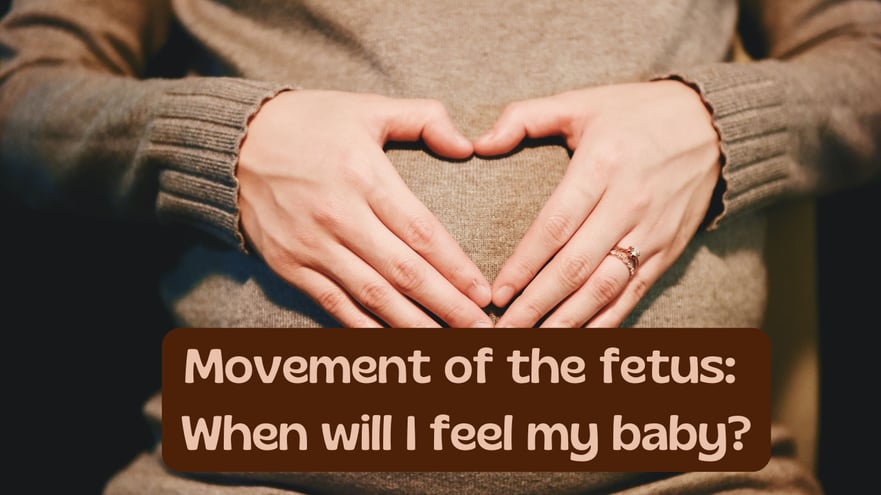When you're pregnant, you often wait eagerly for your baby to start moving, especially if this is your first child. However, some patience is required. Your child is able to move quite early, as early as the eighth week of pregnancy. But it's still so small that you can't even see it. As a result, the infants do not express themselves until the 18th week of pregnancy. Women typically need at least that much time to feel their child. The majority of women are able to appreciate the first gentle signs of life around the 20th week of their pregnancy. Your partner will soon be able to feel the baby moving through your abdominal wall as well.
It's important to know where the placenta is. The location of the placenta also affects how strongly you feel about your child. Most women feel their baby less if it is on the front wall of the uterus. The placenta no longer serves as a buffer between the child, the uterus, and the mother's abdominal wall if it is at the back. Then, women frequently feel their child much earlier and with greater clarity. It is also easier for pregnant women who already have a child to recognize the first signs of life. Experience demonstrates that every pregnant woman has a unique perception of their baby's activity.
Some people say they get slight kicks, while others say it feels like ants are scurrying around in their stomach. Still other people think that the child's first movements are more like a tickle. The majority of mothers feel their infant for the first time at night while they are sleeping. In most cases, in the months to come, your child will also become particularly active while you are sleeping. The usual rocking motion that tends to soothe or lull the young ones to sleep is then absent. Look at the bright side: a child who is active at night is usually good for the future father. He gets a chance to hear something about it because of this. And to begin his first conversations with the offspring, such as by stroking your belly.
Continual, one-sided pounding: the baby is having hiccups. Some children more frequently than others use their thumps and somersaults to make themselves known. However, a baby's temperament does not depend on how active it is in its mother's womb. During the middle of their pregnancy, many women experience a gentle, consistent pounding—their baby is having hiccups! This is normal, and your child will not suffer as a result. These hiccups won't go away on their own; there is nothing you can do about them. Your baby gets bigger as it gets older. It moves more strongly over time, sometimes making it a little uncomfortable. The activity in your tummy decreases significantly toward the end of your pregnancy because there is no longer enough room for it!
When a child does not move for an extended period of time, expecting mothers are understandably concerned. It's possible that you simply did not feel your baby amid the bustle of everyday life (at work). If you're not sure, lie down quietly and check to see if your baby is moving. Turning from one side to the other frequently assists in encouraging the baby to move on its own. Tip: If you think something is wrong, get in touch with your doctor or midwife right away. They'll look at you to see how your baby is doing. The baby is just resting a little longer because most of the time everything is fine.




